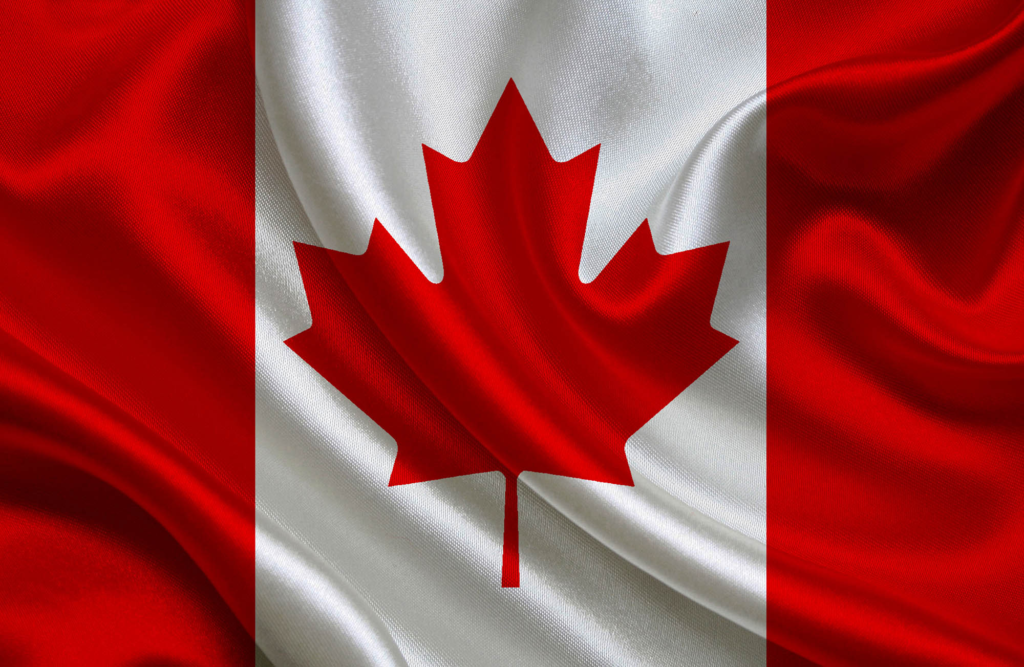Canada is a diverse and multicultural country that welcomes people from all over the world.
It is also a country that values respect, equality, and inclusion in its society and workplaces.
However, every culture has its own norms, values, and expectations that may differ from those of newcomers.
Therefore, it is important for you to learn about Canadian culture and workplace etiquette and to adapt to them as much as possible.
This will help you integrate into the new environment, communicate effectively with your colleagues and clients, and avoid misunderstandings or conflicts.
Read on as we discuss some key aspects of Canadian culture and workplace etiquette, such as communication styles, dress codes, time management, teamwork, and feedback.
There will also be some tips and resources on adapting to these aspects and succeeding in the Canadian workplace.
Understanding Canadian Culture

Understanding Canadian culture means learning about the values, beliefs, customs, and traditions of the diverse people who live in Canada.
Canada is a multicultural country that welcomes immigrants from all over the world.
Its indigenous, British, French, and other immigrant populations influence Canada’s culture.
Adapting to the Canadian culture and workplace etiquette means respecting the differences and similarities among Canadians and following the norms and expectations of the Canadian work environment.
However, different workplaces may have different cultures depending on their industry, size, location, and goals.
Therefore, it is important to observe and ask questions to understand the specific culture of your workplace.
Workplace Etiquette in Canada

Workplace etiquette in Canada is the rules and norms governing how people interact and behave in a professional setting.
It is influenced by the Canadian culture, which values honesty, sensitivity, empathy, individualism, and respect for diversity.
Some of the aspects of workplace etiquette in Canada are:
1. Dress code
Most Canadian workplaces follow a “business casual” dress code, which means wearing clean, neat, and appropriate clothes that are not too formal or casual.
Ties and jackets for men are usually optional unless the situation requires more formality. Perfume or cologne should be avoided, as some people may be allergic or sensitive to the smell.
2. Communication
Canadians are generally friendly and polite but also direct and assertive. They expect others to communicate clearly, honestly, and respectfully.
They use eye contact, smiles, handshakes, and small talk to establish rapport and trust. They avoid interrupting, raising their voice, or using offensive language.
They also respect the privacy and personal space of others and do not ask for or share too much personal information.
3. Teamwork
Canadians value teamwork and collaboration and expect everyone to contribute and cooperate.
They appreciate diversity and different opinions and try to reach a consensus through discussion and compromise.
They also give and receive feedback constructively and acknowledge the achievements and efforts of others.
They avoid pulling rank, blaming, or taking credit for someone else’s work.
4. Punctuality
Canadians consider punctuality as a sign of respect and professionalism.
They expect others to be on time for meetings, appointments, and deadlines.
They also expect others to inform them in advance if they will be late or absent and apologize for any inconvenience caused.
They do not tolerate frequent or unexplained delays or absences.
5. Etiquette For Meals and Social Events
Some Canadian workplaces may organize meals or social events to celebrate or network.
These are opportunities to show interest and appreciation for the host and the guests and to build relationships.
Canadians follow some basic etiquette rules for these occasions, such as waiting for everyone to be served before eating, using proper table manners, avoiding alcohol or drinking moderately, sending a thank you note after the event, and so on.
5 Tips for Adapting to Canadian Workplace Culture

Adapting to the Canadian workplace culture is important for newcomers who want to succeed in their careers in Canada.
Here are some tips to help you adapt to Canadian culture and workplace etiquette:
1. Respect Diversity
Canada is a multicultural country with people from different backgrounds, cultures, religions, and identities.
Respect the differences and learn from others.
Avoid making assumptions or stereotypes about people based on their appearance, accent, or name.
2. Communication
Canadians value direct and honest communication but also use polite expressions and tone to avoid offending others.
Use words like “please,” “thank you,” “sorry,” and “excuse me” when appropriate.
Listen actively and ask questions if you don’t understand something. Give and receive feedback constructively and respectfully.
3. Teamwork
Canadians expect employees to take responsibility for their work and to contribute to the team’s goals.
Don’t wait for instructions or guidance from your manager, but show that you can work independently and creatively.
At the same time, collaborate with your co-workers, share your ideas, and support each other.
Be flexible and adaptable to changing situations and demands.
Also check out our guide on: How to Find and Apply for the Best Jobs in Canada for Immigrants
4. Follow the Rules and Norms
Every workplace has its own rules and norms that you need to follow and respect.
These may include dress code, working hours, breaks, meetings, emails, phone calls, etc.
Learn about the expectations and standards of your workplace and follow them.
If you are unsure, ask your manager or co-workers for clarification.
5. Network and Socialize
Networking and socializing are important ways to build relationships and trust with colleagues, managers, and clients.
Participate in social events, such as lunches, coffee breaks, parties, etc., and engage in small talk.
Show interest in others and their personal lives, but avoid topics that may be sensitive or controversial, such as politics, religion, or money.
Share some information about yourself and your culture, but don’t overshare or brag.
Be friendly and positive, but not too informal or familiar.
How to Overcome Challenges With Canadian Culture and Workplace

Adapting to the Canadian culture and workplace etiquette can be challenging for newcomers from different backgrounds and experiences.
However, learning and growing in a diverse and inclusive society is also an opportunity.
Here are some tips to help you overcome this challenge:
1. Learn the Cultural Norms
Learn about the norms, values, and expectations of Canadian workplaces.
For example, punctuality, reliability, respect, and professionalism are important qualities to demonstrate in any job.
You can also research the specific industry or sector you are interested in and find out the licensing or credential requirements, if any.
2. Team Work
Seek feedback and guidance from your colleagues, supervisors, mentors, or coaches.
They can help you improve your skills, performance, and communication.
They can also provide valuable insights into your workplace’s culture and etiquette.
Be open to constructive criticism and learn from your mistakes.
3. Be Part of a Community
Engage in community activities and volunteering.
This can help you expand your network, practice your language skills, and gain Canadian work experience.
You can also learn about the traditions, customs, and values of different cultural groups in Canada and celebrate the diversity of this country.
4. Be Proud of Your Identity
Be confident and proud of your own identity, culture, and achievements.
You have much to offer and contribute to Canada’s society and economy.
You can also share your perspectives, ideas, and experiences with others and learn from them as well.
Respect and appreciate the differences and similarities among people and cultures.
Resources and Support for Canadian Culture and Workplace
Resources and support are the various tools, services, and programs that can help newcomers to Canada adjust to Canadian culture and workplace etiquette.
These resources and support can include:
- Online courses and workshops that teach newcomers about the Canadian workplace culture, such as expectations, communication styles, feedback, teamwork, and diversity.
- Mentoring and coaching programs that connect newcomers with experienced professionals who can offer guidance, advice, and feedback on their career development and goals.
- Networking events and platforms that help newcomers build connections and relationships with other professionals and employers in their field of interest or expertise.
- Settlement agencies and organizations provide newcomers with information, referrals, and assistance on various aspects of living and working in Canada, such as housing, health, education, language, and legal issues.
Some examples of resources and support for adapting to the Canadian culture and workplace etiquette are:
- Achēv is a non-profit organization that offers a range of services and programs for newcomers, such as employment, language, and settlement services.
- New Canadians is a web and TV show that provides information and inspiration for newcomers to Canada, such as stories, tips, and resources on employment, education, and lifestyle.
- Rishi Immigration is a consultancy firm that helps newcomers with immigration, settlement, and employment services, such as visa applications, resume writing and job searches.
Conclusion
Adapting to Canadian culture and workplace etiquette is not merely about conforming to a set of rules but rather about embracing the values, behaviors, and norms that define Canadian society and professional environments.
By understanding the importance of diversity, inclusivity, and respect for others, you can effectively navigate the complexities of Canadian workplaces.
Cultivating strong communication skills, demonstrating professionalism, and being culturally sensitive are key elements in successfully integrating into Canadian culture.
Good luck as you fit in!